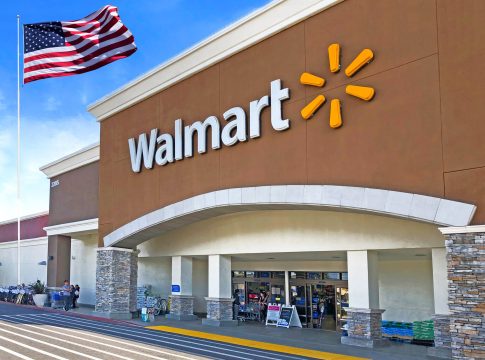Walmart’s Resilience Amid Regulatory Challenges: A Closer Look
Walmart has recently demonstrated unexpected stamina in the stock market, even while grappling with a significant legal challenge. On June 20, shares rose 1.08%, closing at $96.12, and continued to experience a slight bump in after-hours trading. This financial stability comes despite the retailer’s agreement to a hefty $10 million settlement with the U.S. Federal Trade Commission (FTC) concerning allegations of consumer fraud linked to its money transfer services.
Settlement Highlights
The FTC’s charges stemmed from accusations that Walmart, between 2013 and 2018, inadequately safeguarded its in-store money transfers. As an agent for companies like MoneyGram and Western Union, Walmart allegedly neglected essential fraud prevention measures. The FTC emphasized that Walmart’s teams failed to receive adequate training and ignored warning signs about scams targeting customers, resulting in significant financial losses.
While the retail giant has not admitted any wrongdoing, the settlement imposes strict conditions. Going forward, Walmart must establish effective fraud safeguards before processing any money transfers. The retailer is also prohibited from aiding telemarketers or facilitating dubious transactions. The FTC noted that scammers exploited Walmart’s money transfer system, siphoning hundreds of millions from unsuspecting victims, particularly the elderly.
Compliance Challenges in Retail Financial Services
This legal action underscores the increasing scrutiny retail companies face as they delve into financial services. Walmart’s ventures into money transfers highlight a critical gap; quick innovation often outpaces necessary compliance frameworks. Established in 2014, Walmart’s own "Walmart-2-Walmart" service aimed to offer lower fees. While beneficial to consumers, the absence of robust protective measures left users vulnerable to fraud.
The FTC pointed out that Walmart’s internal protocols didn’t evolve in tandem with its expanding role in the financial transfer arena. The regulatory action serves as a reminder of the broader compliance pressures that retailers must face as they engage in fintech, a space usually dominated by banks and licensed money services.
Continued Innovation Amid Scrutiny
Despite this setback, Walmart remains committed to its goal of becoming a leading omnichannel retailer. Recently, the company made headlines by scaling its drone delivery service across five major U.S. cities, including Atlanta and Orlando. With over 150,000 drone deliveries completed from 100 locations, Walmart is embracing technology-driven logistics in a significant way.
This juxtaposition of regulatory scrutiny and technological advancement reflects a larger trend within the retail sector. As Walmart merges physical retail with innovative tech and services, it must find the right balance between swift growth and unwavering compliance to customer protections.
Conclusion
While the $10 million settlement may appear minor compared to the vast sums lost to scams, it signals a stern warning from regulators. Expectations for non-financial companies to uphold the same compliance standards as traditional financial institutions are clearer than ever. However, for now, investor confidence in Walmart’s ability to navigate these challenges seems unwavering, paving the way for its ambitious future.

Writes about personal finance, side hustles, gadgets, and tech innovation.
Bio: Priya specializes in making complex financial and tech topics easy to digest, with experience in fintech and consumer reviews.

